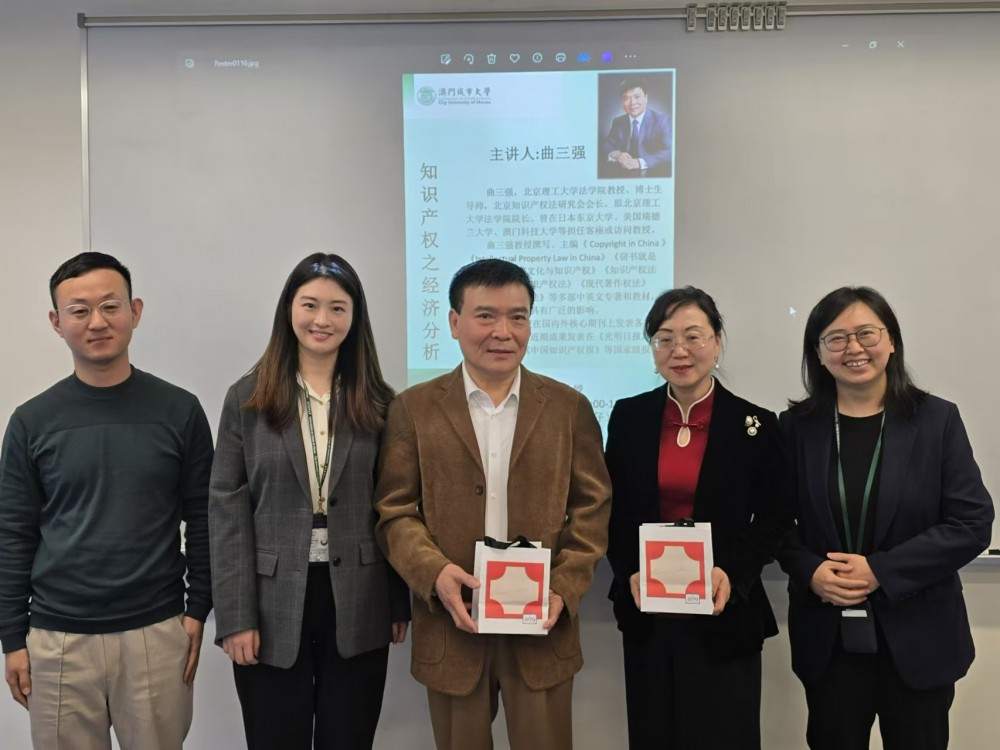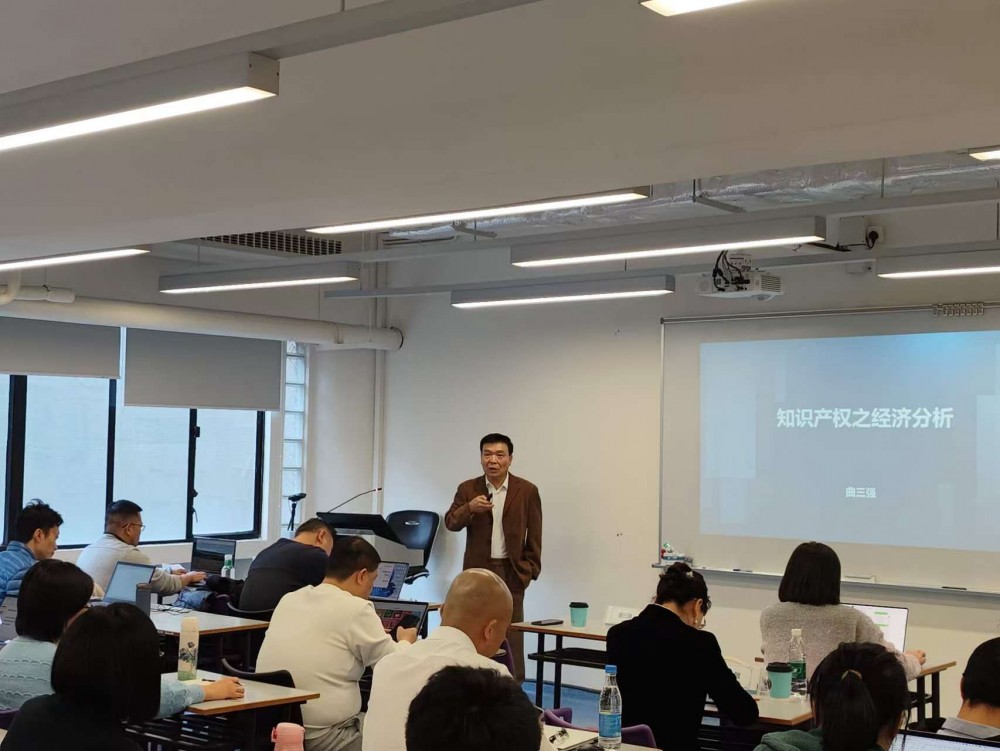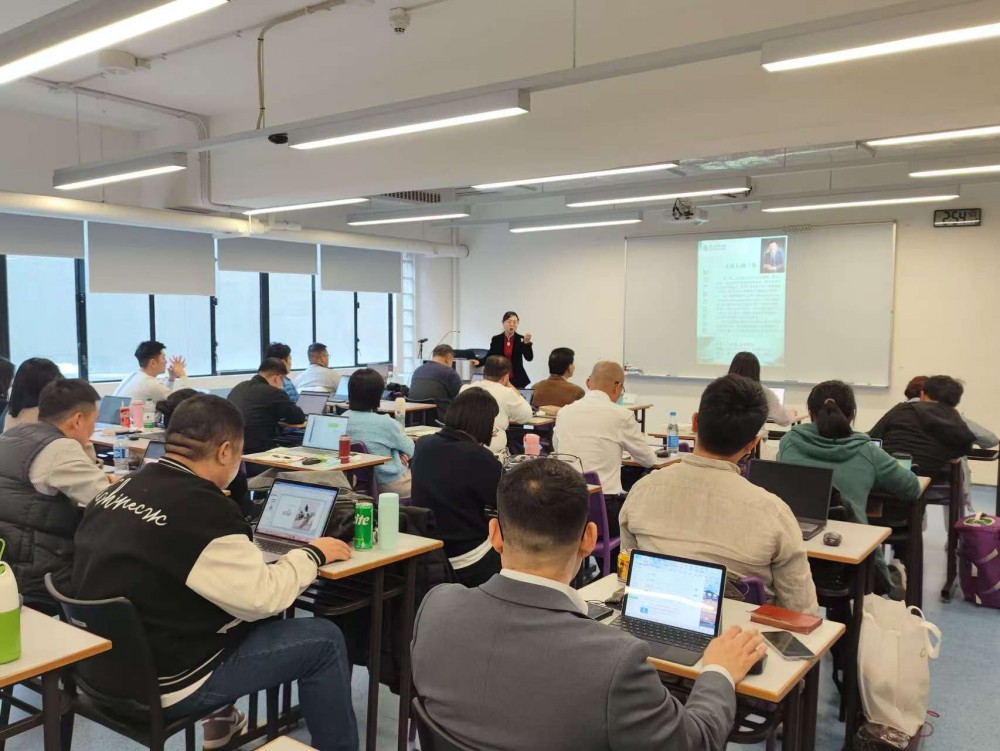On January 16th, the Faculty of Business welcomed Professor Sanqiang Qu from the Beijing Institute of Technology (BIT) and Professor Min Zhang from Northwestern Polytechnical University (NWPU) to deliver two insightful speeches to our DBA students. The lectures were hosted by Assistant Professor Yafeng Zhang and Assistant Professor Peixin Zuo, with participation of Assistant Professor Limeng Yu in the academic exchanges.
Prof. Qu, a leading figure in the field of intellectual property, shared his extensive experience witnessing the evolution of China’s intellectual property law over the past forty years. He provided an overview of the economic analysis of intellectual property for the DBA students and offered an in-depth introduction to the relationship between the new quality productive forces and the intellectual property system.
Prof. Zhang, a pioneer in data law research, discussed the development of China’s data law discipline. She elaborated on the origins and evolution of data governance in China, inspiring DBA students to deepen their understanding of this critical area. Prof. Zhang emphasized the historical context of data governance and encouraged students to consider how they should engage with the regulatory framework surrounding it.
Both speeches fostered a vibrant academic atmosphere, prompting eager questions from DBA students who seized the opportunity to engage with Prof. Qu and Prof. Zhang. This event not only strengthened the ties between our faculty and leading scholars in intellectual property but also provided DBA students with a richer understanding of intellectual property and data governance from an academic perspective. Additionally, it highlighted how intellectual property can drive technological innovation, particularly in the realm of new quality productive forces, from a managerial standpoint.
The DBA Programme at the Faculty of Business is dedicated to inspiring and training students to integrate theory and practice, broadening their research horizons through interdisciplinary exchanges. We hope that such academic interactions will continue to ignite students’ passion for research and support their future academic and professional development.



